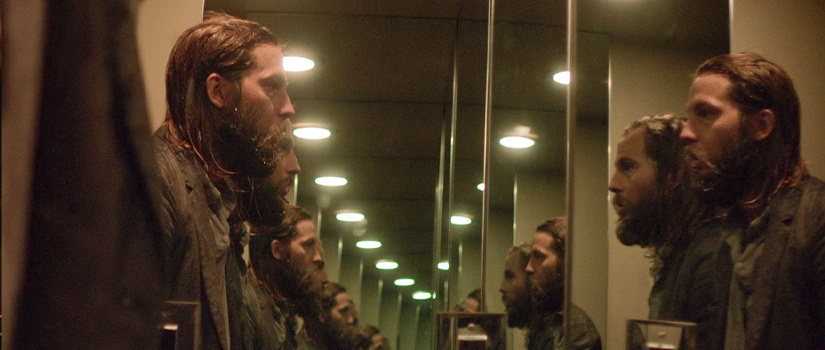By Brook Lindley
In 2016, The Wrap released an article featuring “12 Movies That Served Up Dinner Parties From Hell.” Karyn Kusama’s 2015 film The Invitation made the list. Are dinner parties really so dreadful? Why do so many horror films share this setting? The horror of The Invitation arises from exaggerations of the social fears already associated with dinner parties.
Saving undercooked meat or cooking mishaps, the food is not what provokes anxiety in the guests of a dinner party. It is the conversation that is the true meat and potatoes of the event, and this is where they often go wrong. Guests can’t help but to fear what will be said. Silence is scary, but not as scary as political conversation. These risks of controversy come into play in The Invitation. In the film, the guests reunite for the first time after the tragic loss of a child, and it is clear no one knows how to approach the topic, or if they even should. Enough time has passed that it seems the guests are merely pretending not to be strangers.
Vulnerability is another aspect of why many apprehend dinner parties. Sitting at a table with a large group of people you may hardly know inspires the fear of being watched. Are the other guests staring as you eat? Are they judging your clothes and your etiquette? Adding to the social vulnerability is a dependency on the host that puts you out of control. When you aren’t determining the meal preparations or how many courses are served, you can’t leave early without causing a scene or appearing ungrateful. In The Invitation, the guests grapple with the inescapability of dinner parties to the extreme.
There is also insecurity. For many hosts, dinner parties are all about showing off the luxuries they can afford and presenting their perfectly maintained home. In The Invitation, however, envy towards grandiose displays go beyond fine china. The father of the film’s deceased child has to confront the idea that others have moved on from their trauma while he can’t.
Perhaps the most frightening aspect of the dinner party is the sense of obligation. Eating gourmet cuisine prepared by the host and drinking their fine wine creates a social debt. When the dinner is excessively impressive, is bringing a bottle of wine enough? Networking is the true purpose of many dinner parties. The host is preparing a pleasurable experience for you because there’s something you can do for them.
When you have a social debt, it’s hard to decline even perilous favors. Hospitality is persuasive, and the wine brings your guard down. You remain open to your host’s proposals, lest you suffer the embarrassment of causing tension. The host has business, and The Invitation approaches how dubious this business can be. With its hyperbolic representations of all that make dinner parties worse than awkward, The Invitation serves up fear on a silver platter.
